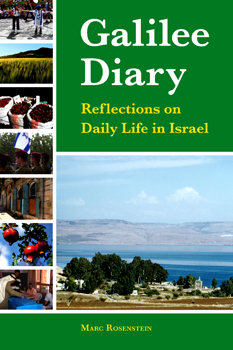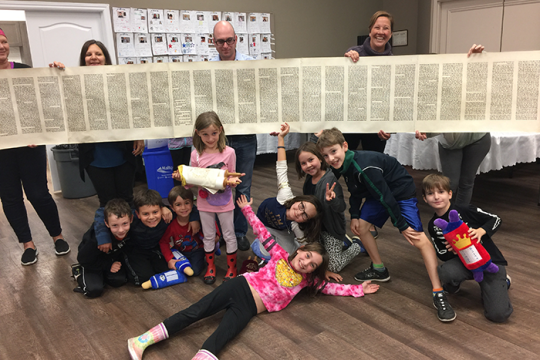
We took our last look at [Nazareth], clinging like a whitewashed wasp's nest to the hill-side, and at eight o'clock in the morning departed. We dismounted and drove the horses down a bridle-path which I think was fully as crooked as a corkscrew, which I know to be as steep as the downward sweep of a rainbow, and which I believe to be the worst piece of road in the geography, except one in the Sandwich Islands, which I remember painfully, and possibly one or two mountain trails in the Sierra Nevadas.
– Mark Twain, The Innocents Abroad, p. 539
For years we all joked about the Dickensian ways of Israel's bureaucracies, with their surly clerks, tea breaks, always-surprising schedules of hours, and towering piles of dog-eared file folders. But quietly, over the years, the system has been improving, and today the majority of mundane transactions with the tax authorities, social security, utilities, etc., can be done on the internet. However, recently I had to make a personal appearance at the regional income tax office, to set up the tax status of my pension. I looked forward to this encounter with dread, for two reasons: a) memories of long waits in the wrong line at other government offices, only to be told I was missing one crucial document; and b) the challenge of driving and parking in downtown Nazareth where the regional tax office is located: Nazareth, Israel's main Arab city (pop. 67,000), is infamous for its labyrinthine, unsigned streets and constant, exasperating congestion, as student drivers, tour buses, double-parked delivery trucks, non-functioning traffic lights, and random decisions by the person in front of you to make a three point turn all combine to create a unique adventure in driving.
When I couldn't put it off any longer I set aside a morning, made copies of every document I could find, and set off. I generally begin to get butterflies already as I approach the entrance to town – the entrance road is lined with shops and is intersected by a series of busy side streets with no stop signs, that meet the narrow main road at all sorts of strange angles and steep inclines. If you can relax, and get into the spirit of a combination of aggressiveness and courtesy, of taking and giving the right of way, it's sort of fun, in a perverse way. Like bumper cars. Meanwhile, I had done some preparation with Google Maps. The congested main drag of downtown, Pope Paul VI Street, where the tax office is located, runs roughly parallel to and about half a mile from Zionism Avenue, a wide bypass road separating Nazareth from Jewish Upper Nazareth. So I took advantage of a gleaming new mall with its expanse of free parking, on the Nazareth side of Zionism Ave., and walked along Toufik Ziad Street into downtown (Ziad [1929-1994] was a poet, a popular mayor of the city, a member of the Knesset from the communist party for 20 years – one of the great leaders of the Israeli Arabs). As I walked along past shawarma stands and garages and hardware stores and the occasional bridal salon, I contemplated the ironies of the street names.
Google Maps do have their limits, so I spent about 10 minutes being lost, but it was a beautiful, cool and sunny day, Christian pilgrims from all over the world were thronging the market, the city, seen from the sidewalk, was bustling and colorful and friendly if a bit shabby – and the pungent smell of roasting coffee was everywhere. At the entrance to a dingy hallway in the office floors above a department store, the security guard was preoccupied with his cell phone and ignored me. I wandered along until I found what seemed to be the right sign on an open door. There was no line. There were two desks in the windowless office; occupied by two young women, one Jewish and one Arab. The Arab clerk (the one with the long blond hair) gestured to me to sit down, and graciously and competently processed my documents, printed out what I needed, and wrote down her direct phone and fax numbers for me for future updates. I walked out in a state of disbelief – and looked at my watch; I had been there seven minutes.
It was a short walk back to my car, and I was on the highway and home in no time – leaving me the rest of the morning free, to think about what an interesting place this is to live in – and to write a Galilee Diary entry about the experience.



